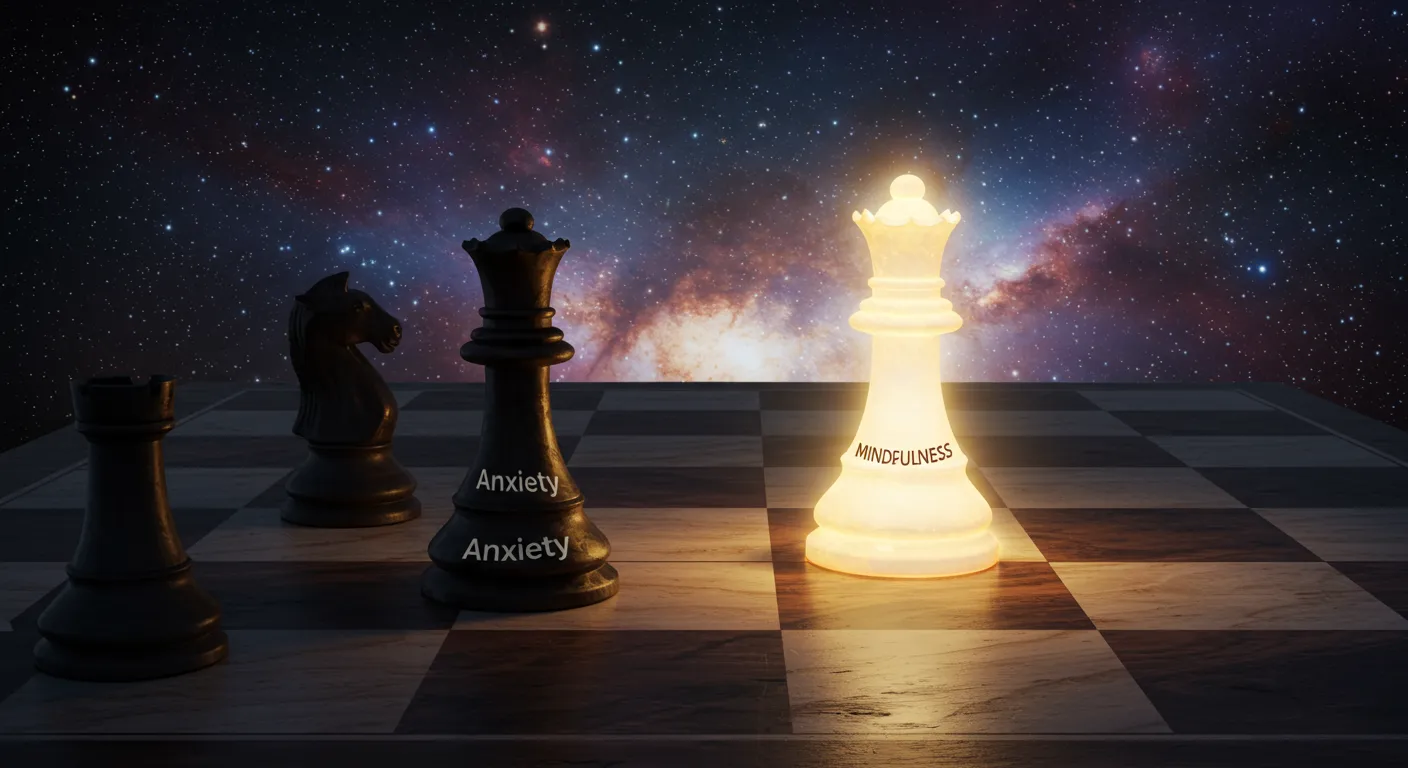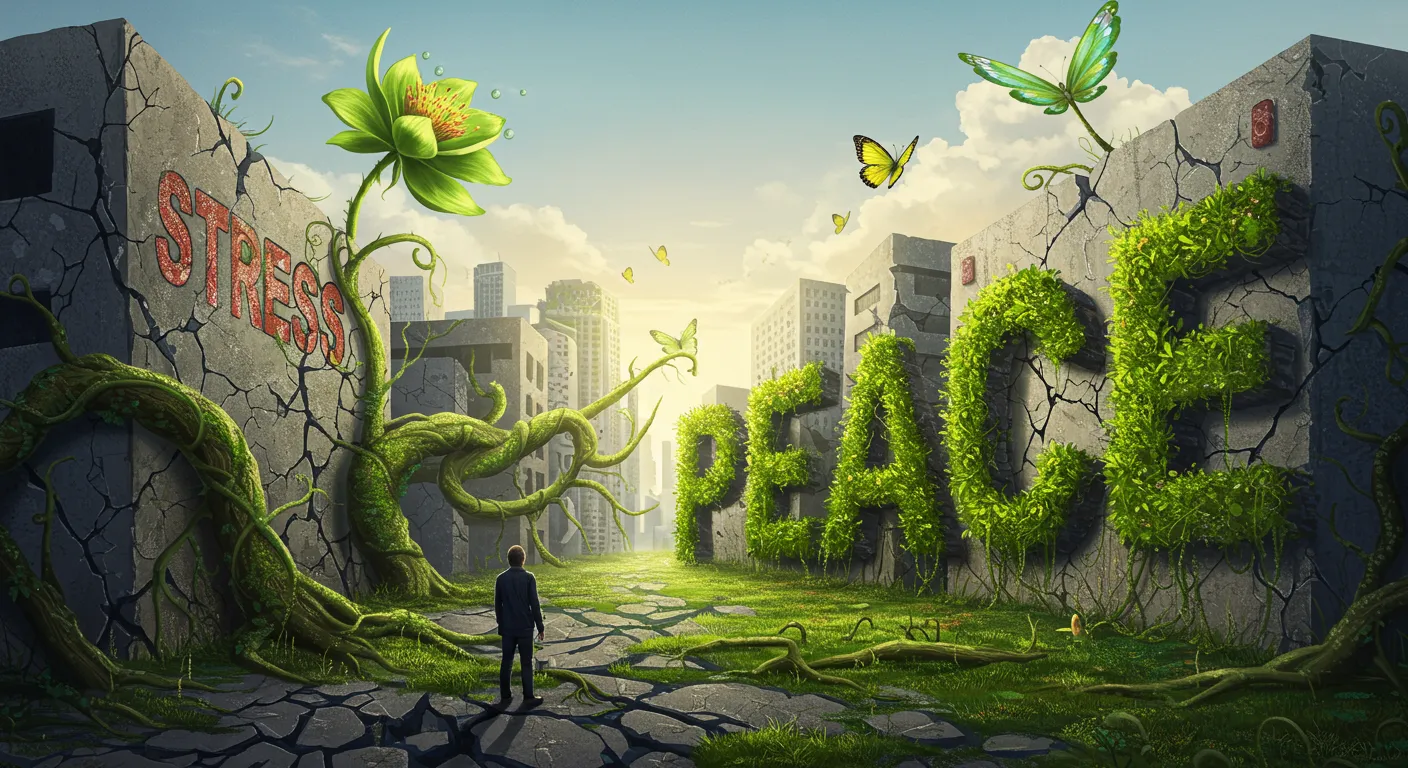Sometimes you have a nasty dream and wake up sweating. Most of us have nightmares occasionally, but what if they happened every night? Imagine being haunted not only at night but also at the worst times of day. Some people are plagued by anxiety, which is practically impossible to overcome. You must fight back in such situations. Here are some anxiety-reduction tips for you.
You'll learn what form of anxiety you have, how to fight it, and why you need a therapist. You will also discover how breathing correctly helps prevent panic attacks, how to communicate your anxiety to loved ones, and why you might wish to name your anxiety.

Have heart palpitations and trouble breathing? If you're healthy, anxiety may create these symptoms. These concerns are usually anxiety illnesses, which have varied symptoms. Everyone gets worried, but it may get worse. Most individuals are familiar with phobias, disorders in which a single scenario or object, such a spider, causes excessive terror.
Another anxiety illness is Post-Traumatic Stress Disorder (PTSD), which can come from childhood maltreatment or conflict. Another anxiety disease, OCD, is characterized by fear-driven obsessions. OCD symptoms include obsessive touching of certain objects at certain times and severe tics that limit daily life. Thus, there are numerous types of anxiety, and an expert can assist you identify yours.
Treating anxiety disorders is crucial because anxiety may cause havoc when left unchecked. PTSD patients may have panic attacks, flashbacks, and violent outbursts. PTSD sufferers' brains are in fight-or-flight mode, which prohibits them from living their daily lives because even small surprises can cause great suffering.

OCD forces patients to excessively follow rituals to maintain order, which negatively impacts their daily lives. OCD sufferers may open and close the door 12 times before leaving the house. His worry may make him think his family will die violently if he doesn't. These are some ways anxiety may control your life, but it doesn't have to. How treatment can help you recover control is explained in the next flash.
Many individuals have experienced this: lying in bed, ready to sleep, but unable to shut off your head. Many people have mental anxiety that keeps them up at night and causes panic attacks. Where does nervousness come from? One common source is catastrophising, where fear makes you see an ordinary event spiraling out of control.
Say you have a test tomorrow. Instead of believing you studied well, you envision failing the exam. You fantasize about college rejection and how you'll never achieve your desired career. These exaggerated situations are common. Anxiety often involves imagining what others think of you at any given time, skewing toward negative views. If your partner comes home grumpy, you may blame yourself. You worry about doing anything incorrectly and spiral into anxiety. Both your thoughts and body can create anxiety episodes.

This anxiety is caused by extreme fear and biological predispositions to symptoms like heart palpitations and disturbed stomachs. Combining such symptoms can cause a panic attack without a mental breakdown. Worse, body-induced panic attacks might strike suddenly. People who are physiologically inclined to panic episodes can easily trigger panic mode without any external stimulus. The randomness of such attacks typically stresses victims. Fear of another attack increases anxiety and the likelihood of one. These episodes include shortness of breath, disorientation, and choking.
Hollywood films commonly show characters slowing their breathing to calm down during panic attacks. One movie lesson that works is that aware breathing reduces anxiety. You can quiet your body and divert yourself from the anxiousness by focusing on your breath. This is simple: humans can't multitask. Since you can't focus on the reason for your worry, focusing on your breath will soothe you. You should practice aware breathing to prepare for a panic attack. Take a deep inhale while counting to four, hold it until seven, then slowly exhale at eight. You'll relax and let go quickly.

Breathing can stop a panic attack, but how do you prevent one? Relaxation breaks can lessen the chance of such an event. Since we're always available in modern society, this is crucial. Because we deal with colleagues around the world and receive messages on our phones, we often work late. This persistent low-level stress is bad for our mental health and encourages panic attacks. Downshift to counteract it. For instance, set office hours and only work then. Or, you may download your emails and travel to a cafe without WiFi to react offline without interruptions. Simply not being available 24/7 works. By taking time for yourself, you can focus on the present and avoid tension and anxiety.
Isolating anxiety can make you feel insecure. When others don't understand your suffering, it's worse. This is a big issue because many people without anxiety disorders struggle to appreciate others' suffering. Due to the fact that mental ailments like anxiety are distinct from physical illnesses. The obvious nature of physical ailments makes them easy to understand. But mental illness is hard to understand or conceive without experiencing it.

That doesn't mean people don't want to help. Your loved ones will try to help, but they won't know what's best. In the end, this may increase stress. However, writing a letter can help others understand your anxiety. You can write out all your sentiments so the other person can sit down and actually listen. In this letter, you might express your loved one how anxiety makes you feel, how much you appreciate them, and how hard it is to be around someone with anxiety.
However, you should also remind them that you may not always want to talk about all you're feeling and that you need time to work through your concerns before involving others in your anxiety. Sharing this can help others understand and support you.
By now, you have some anxiety-reduction strategies. However, sometimes you can't do it alone, and expert aid makes anxiety management easier. Medication alone is never enough, despite what some assume. Some people find it helpful, but a qualified therapist can help you identify the causes of your worry. Beyond that, therapy is a great chance to trust someone who can push you to develop while acknowledging your concerns. Therapy can identify your anxiety and teach you how to address it safely.

Untreated anxiety can lead to despair and suicidal thoughts; therefore, treatment is vital. Focus on your development in therapy. Doing so will help you stay positive throughout tough times, which is crucial because fighting anxiety can feel like an endless war with few wins. Focussing on your progress since your initial panic episode, even if it was tiny, will improve your confidence to keep fighting.
To do so, personalize your anxiety. One author dubbed his anxiousness “Fred” and saw him as a person rather than a disease. When he had a rough day, Fred was mad and tried to ruin his life. Over time, Fred became less present as he worked to eliminate him. This inspired the author to permanently “kick Fred’s ass” out.
This book's main message: Anxiety problems can be devastating, yet there are simple ways to calm yourself and improve. However, professional support and chats with friends and family are vital to overcoming anxiety.

Actionable Advice: Practice 4-7-8 breathing daily. Relax for 15 minutes daily. Start breathing and focus on the sensation of air entering and leaving your body. Try breathing in for four seconds, holding for four, then exhaling for four. Change the pattern to 4-7-8 for a few minutes: breathe in for four seconds, hold till seven, release at eight.
By practicing conscious breathing in a secure, non-stressful place, you can use it during an unexpected panic attack.
Reading suggestions: Hardcore Self Help, by Robert Duff.
About the author: Dr. Robert Duff is a psychologist on a mission to teach people about mental health in an accessible way. In addition to writing, he regularly hosts a mental health podcast on his website.



